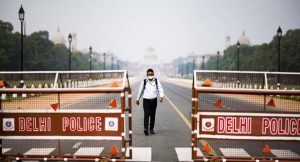COVID-19 is still a deathly reality in majority of the countries of the world, including India. The priority of all responsible governments, companies and organizations should be without any shadow of doubt to preserve the population from a massive spread of the virus. Everyone would agree on this point.
That being said, we should also prepare ourselves for how to come back from the lockdown, considering that the current health crisis will be followed by economic one, affecting the economy and the labour markets like no other crisis since World War II. And according to all the available information it would be a global crisis, affecting all the countries to some extent or the other:
– The IMF is forecasting a contraction as a result of the pandemic on the global economy of –3 percent in 2020, much worse than during the 2008–09 financial crisis. The risks for even more severe outcomes, however, are substantial.
– WTO expects a world trade fall by between 13% and 32% in 2020 as the COVID 19 pandemic disrupts normal economic activity and life around the world.
– The ILO latest report from 7th of April shows that the COVID-19 crisis is expected to wipe out 6.7 per cent of working hours globally in the second quarter of 2020 – equivalent to 195 million full-time workers. 125 million of them in the Asia and the Pacific region. To put in perspective, the global unemployment increase from 2008-9 global financial crisis was 22 million…
This is why while coming back from the lockdown in the most efficient way is critical, keeping the maximum safety standards becomes extremely important as well. And particularly in the case of India, with an estimated share of almost 90 per cent of people working in the informal economy – approx. 400 million workers- at risk of falling deeper into poverty during the crisis.
The latest World Health Organization briefing on COVID 19 recommends six criteria for countries as they consider lifting restrictions:
– First, that transmission is controlled;
– Second, that health system capacities are in place to detect, test, isolate and treat every case and trace every contact;
– Third, that outbreak risks are minimized in special settings like health facilities and nursing homes;
– Fourth, that preventive measures are in place in workplaces, schools and other places where it’s essential for people to go;
– Fifth, that importation risks can be managed;
While our government should assess the particular situation on the come back from the lockdown in order to protect their citizens the best way possible, companies should play an active role to ensure a successful end of the lockdown, specially facilitating the preventive measures in workplaces and supporting education of the communities around. In particular Staffing organisations like ours could play an additional role together and in cooperation with governments facilitating the application of specifics acts and regulations on PF, relaxation of taxes or other economical actions to relieve the pressure of the crisis on the country workers.
If you are a manager, first it is important to focus in what is most important: the safety of everyone you are responsible for. For this, it is crucial you ensure that you have clear business protocols and expectations in place and fine-tune them as necessary. Work-from-home (the ones that are able to do it) was only the first step: what else needs to happen in your organization for people to feel safe, engaged, informed, and useful on the return to ‘normal’ activity? To create a clear plan for your organization, think strategically, conduct (and re-conduct) scenario planning—Plans B, C, and D—and be willing to adapt quickly is essential. Ladies and Gentlemen, hope is not a strategy.
“Every little thing counts in a crisis.” Jawaharlal Nehru
As India’s first Prime Minister said, everything would be important to overcome this situation. A successful come back from the lockdown is not only in hands of the government or companies. The responsibility does not apply just to political leaders, CEOs or General
Managers of a company, but to everyone in the society. The energy, focus and resilience of every one of us become precious commodities during a prolonged state of crisis.
This is a time to make a difference. You should treat this COVID-19 crisis as a defining moment for yourself, your organization and your country.
Step up and act accordingly.
From,
Marcos Segador Arrebola,
Country Manager

